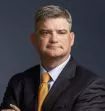On July 31, 2024, Senators Jon Ossof (D-GA), Sherrod Brown (D-OH), Bill Cassidy (R-LA), and Rick Scott (R-FL) introduced the bipartisan American Tax Dollars for American Solar Manufacturing Act. The bill aims to "prevent Chinese companies from using American tax credits designed to accelerate solar manufacturing," thus "further strengthening American energy independence and solar manufacturing."
The bill, which is less than two pages long, would amend Section 45X of the Internal Revenue Code. Section 45X provides for advanced manufacturing production credits. The credits were created under the Inflation Reduction Act to support the production and sale of certain components used in clean energy systems, including wind energy components, inverters, qualifying battery components, solar energy components, and applicable critical minerals. Specifically, the bill would disallow the credit "with respect to any eligible component which is produced by a foreign entity of concern (as defined in section 9901(8) of the William M. (Mac) Thornberry National Defense Authorization Act for Fiscal Year 2021" (the "2021 NDAA")). The 2021 NDAA defines "foreign entity of concern" as any foreign entity that is:
(A) designated as a foreign terrorist organization by the Secretary of State under section 1189 of title 8;
(B) included on the list of specially designated nationals and blocked persons maintained by the Office of Foreign Assets Control of the Department of the Treasury;
(C) owned by, controlled by, or subject to the jurisdiction or direction of a government of a foreign country that is listed in section 2533c 3 of title 10; or
(D) alleged by the Attorney General to have been involved in activities for which a conviction was obtained under:
(i) chapter 37 of title 18 (commonly known as the "Espionage Act") (18 U.S.C. 792 [791] et seq.);
(ii) section 951 or 1030 of title 18;
(iii) chapter 90 of title 18 (commonly known as the "Economic Espionage Act of 1996");
(iv) the Arms Export Control Act (22 U.S.C. 2751 et seq.);
(v) sections 2274, 2275, 2276, 2277, or 2284 of title 42;
(vi) the Export Control Reform Act of 2018 (50 U.S.C. 4801 et seq.); or
(vii) the International Economic Emergency Powers Act 3 (50 U.S.C. 1701 et seq.); or
(E) determined by the Secretary, in consultation with the Secretary of Defense and the Director of National Intelligence, to be engaged in unauthorized conduct that is detrimental to the national security or foreign policy of the United States under this chapter.
The amendment would "apply to components produced and sold after the date of enactment of" the Act. This is at least the third bill that has been introduced to add the "foreign entity of concern" criteria to Section 45X. Previous bills include the Protecting American Advanced Manufacturing Act, which was introduced by Senators Carol Miller (R-WV) and Marco Rubio (R-FL) in December 2023, and H.R. 9338, which was introduced by Representative Max Miller (R-OH-7) in early August 2024.
On July 31 2024, the American Tax Dollars for American Solar Manufacturing Act was read twice and referred to the Senate Committee on Finance. As of September 30, no further actions have been taken with regard to the bill. However, interested parties should track the bill for additional progress during the 118th Congress's second session, given its significant implications for relevant clean energy projects and close relationship to a hotly debated subject in the United States.
Visit us at mayerbrown.com
Mayer Brown is a global services provider comprising associated legal practices that are separate entities, including Mayer Brown LLP (Illinois, USA), Mayer Brown International LLP (England & Wales), Mayer Brown (a Hong Kong partnership) and Tauil & Chequer Advogados (a Brazilian law partnership) and non-legal service providers, which provide consultancy services (collectively, the "Mayer Brown Practices"). The Mayer Brown Practices are established in various jurisdictions and may be a legal person or a partnership. PK Wong & Nair LLC ("PKWN") is the constituent Singapore law practice of our licensed joint law venture in Singapore, Mayer Brown PK Wong & Nair Pte. Ltd. Details of the individual Mayer Brown Practices and PKWN can be found in the Legal Notices section of our website. "Mayer Brown" and the Mayer Brown logo are the trademarks of Mayer Brown.
© Copyright 2024. The Mayer Brown Practices. All rights reserved.
This Mayer Brown article provides information and comments on legal issues and developments of interest. The foregoing is not a comprehensive treatment of the subject matter covered and is not intended to provide legal advice. Readers should seek specific legal advice before taking any action with respect to the matters discussed herein.





